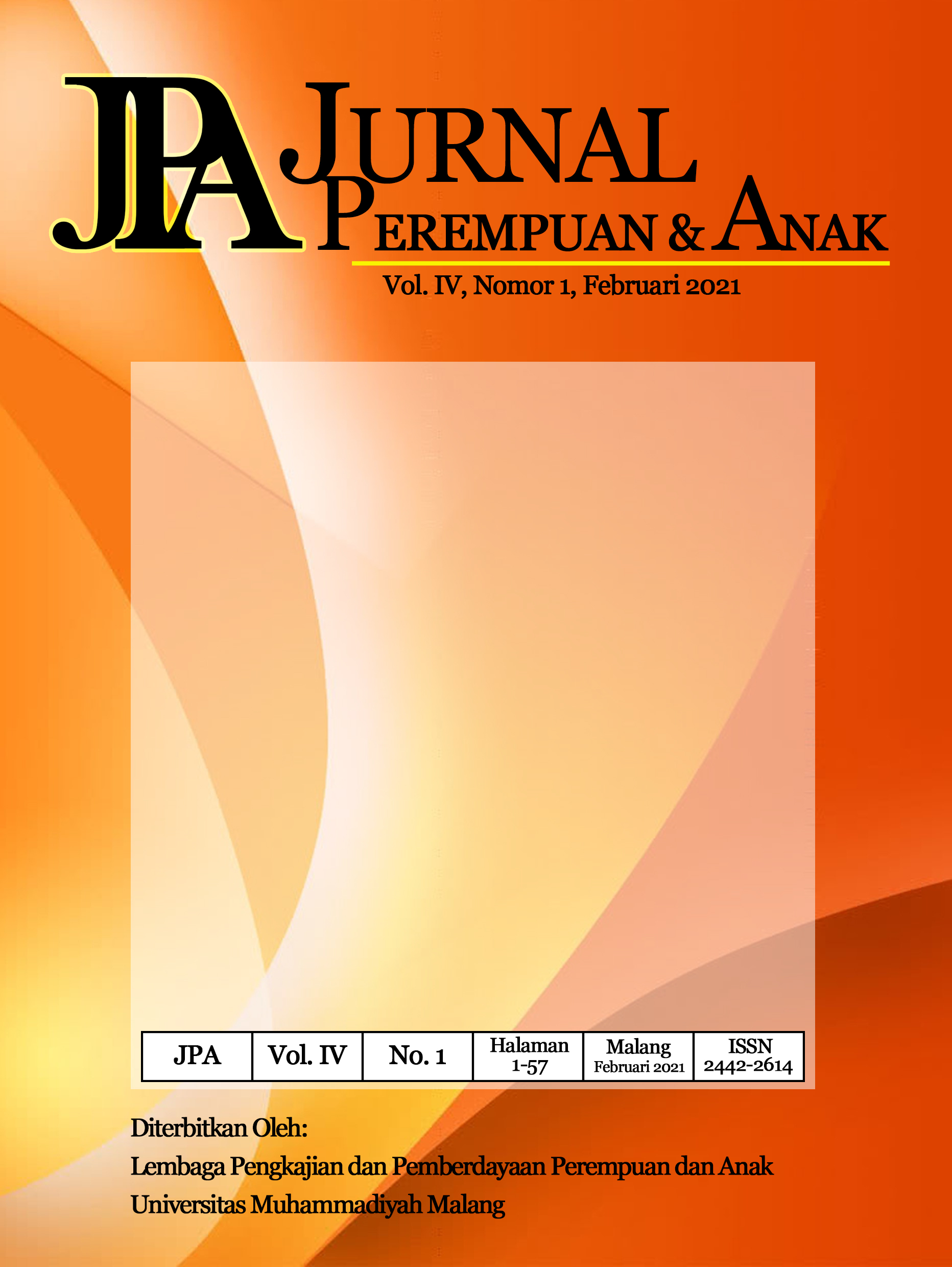English Pedagogy for Student with Emotional and Behavioral Disorders In An Inclusive School
DOI:
https://doi.org/10.22219/jpa.v1i1.17507Keywords:
Teaching English, Strategy, Student with EBDAbstract
Inclusive school is a public school that the student with special needs can be educated together with normal
students. Expanding the potential that they have through the appropriate teaching strategies is crucial to
implement, especially for the student with EBD. The student with EBD is a student that has aggressive
behavior and substantial negative influence in the learning process. In accordance to that, the researcher
wants to investigate (1) the teaching strategies used by the English teacher for the student with Emotional
and Behavioral Disorders (EBD), (2) the implementation of teaching strategies used by the English teacher
for the student with Emotional and Behavioral Disorders (EBD). Using qualitative method, the research
involves one English teacher of SD Satu Atap Sumbersari 1 Malang Inclusive School. The instruments used
were observation and interview. The current research revealed that there were three strategies used by the
English teacher at SD Satu Atap Sumbersari 1 Malang Inclusive School. First, the teacher shows the interest
towards students’ progress through communication to the student with EBD. Second, giving the student an
understanding to have control for everything occurring in their life by giving the student with EBD
punishment when break the rules. Third, conducting class activities relevant to students’ interest with
alternative activities made by the English teacher.
Downloads
References
Anderson, S. R. (2012). Psycho-educational processes as strategies for students presenting with emotional and behavioural disorders. American International Journal of Contemporary Research, 2(7), 25–36.
Anggaswari, A. W. D., & Budisetyani, W. (2016). Gambaran kebutuhan psikologis pada anak dengan gangguan emosi dan perilaku (tinjauan kualitatif dengan art therapy sebagai metode penggalian data). Jurnal Psikologi Udayana, 3(1), 86–94.
Ary, D., Jaccobs, L. C., & Sorensen, C. K. (2010). Introduction to research in education (8th Editio, Vol. Eighth Edi, pp. 1–653). Canada.
Bak, N., & Asaro-Saddler, K. (2013). Self-regulated strategy development for students with emotional behavioral disorders. Beyond Behavior, 46–53.
Beyda, S. D., Zentall, S. S., & Ferko, D. J. K. (2002). The relationship between teacher practices and the task-appropriate and social behavior of students with behavioral disorders, 27(3), 236–255.
Conroy, M. A., & Sutherland, K. S. (2012). Effective teachers for students With emotional/behavioral disorders: active ingredients leading to positive teacher and student outcomes. Beyond Behavior, 1–9.
Creswell, J. W. (2009). Research design qualitative, quantitative, and mix methods approaches (Third, pp. 1–251). Los Angeles.
Garnida, D. (2015). Pengantar pendidikan inklusif (1st ed.). Bandung: PT Refika Aditama.
Hasanah, U. (2015). Konsep gurunya manusia dalam perspektif munif chatib, 1, 52–63.
Ilahi, M. T. (2013). Pendidikan inklusif: konsep dan aplikasi (1st ed.). Yogyakarta: Ar-Ruzz Media.
Mahabbati, A. (2010). Pendidikan inklusif untuk anak dengan gangguan emosi dan perilaku (tunalaras). Jurnal Pendidikan Khusus, 7(2), 52–63.
Majid, A. (2016). Strategi pembelajaran (5th ed.). Bandung: PT Remaja Rosdakarya.
Mangunsong, F. (2009). Psikologi dan pendidikan anak berkebutuhan khusus (1st ed.). Depok: LPSP3 UI.
Marti, A. D. (2012). Pendidikan inklusif di sekolah dasar kota padang. Jurnal Ilmiah Pendidikan Khusus, 1(3), 1–13.
Marzano, R. J., & Marzano, J. S. (2003). The key to classroom management, 61(1), 6–13.
Mcduffie, K. A., Landrum, T. J., & Gelman, J. A. (2008). Co-teaching and students with emotional and behavioral disorders, 11–17.
Ormrod, J. E. (2009). Psikologi pendidikan membantu siswa tumbuh dan berkembang (6th ed.). Jakarta: Penerbit Erlangga.
Pradnyawati, D., & Ardjana, I. G. A. E. (2015). Gangguan tingkah laku pada anak. Jurnal Ilmiah Kedokteran, 46(2), 119–125.
Sanjaya, H. W. (2006). Strategi pembelajaran berorientasi standar proses pendidikan (1st ed.). Jakarta: Prenadamedia Group.
Santrock, J. W. (2011). Educational psychology (5th ed.). New York: McGraw-Hill.
Somantri, T. S. (2012). Psikologi anak luar biasa (4th ed.). Bandung: PT Refika Aditama.
Surna, I. N., & Pandeirot, O. D. (2014). Psikologi pendidikan 1. Jakarta: Penerbit Erlangga.
Sutherland, K. S., Lewis-palmer, T., Stichter, J., & Morgan, P. L. (2008). Examining the influence of teacher behavior and classroom context on the behavioral and academic outcomes for students with emotional or behavioral disorders. The Journal of Special Education, 41(4), 223–233. https://doi.org/10.1177/0022466907310372
Thompson, J. (2010). Memahami anak berkebutuhan khusus. PT Gelora Aksara Pratama.
Williams, J. P. (2014). Nonparticipant observation, (September).
Downloads
Published
How to Cite
Issue
Section
License
Copyright (c) 2021 Laela Hikmah Nurbatra, Desty Meidina Andhini

This work is licensed under a Creative Commons Attribution-ShareAlike 4.0 International License.
Authors who publish with Jurnal Perempuan dan Anak (JPA) agree to the following terms:
- For all articles published in Jurnal Perempuan dan Anak (JPA), copyright is retained by the authors. Authors give permission to the publisher to announce the work with conditions. When the manuscript is accepted for publication, the authors agree to automatic transfer of the publishing right to the publisher.
- Authors retain copyright and grant the journal right of first publication with the work simultaneously licensed under a Creative Commons Attribution-ShareAlike 4.0 International License that allows others to share the work with an acknowledgment of the work's authorship and initial publication in this journal.
- Authors are able to enter into separate, additional contractual arrangements for the non-exclusive distribution of the journal's published version of the work (e.g., post it to an institutional repository or publish it in a book), with an acknowledgment of its initial publication in this journal.
- Authors are permitted and encouraged to post their work online (e.g., in institutional repositories or on their website) prior to and during the submission process, as it can lead to productive exchanges, as well as earlier and greater citation of published wor (See The Effect of Open Access).
This work is licensed under a Creative Commons Attribution-ShareAlike 4.0 International License








